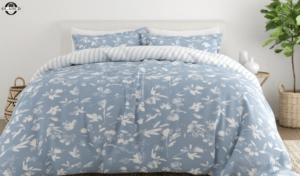The effects of the fashion industry on the environment have come under increased scrutiny in recent years. Regarding apparel, consumers are looking for more environmentally friendly and sustainable solutions. One word that has become more popular in this regard is “organic cotton.” In this post, we’ll examine the idea of organic cotton and the ways companies like Olabed are helping the environment.
Environmentally friendly techniques and ingredients are used in the production of organic cotton. In contrast to traditional cotton farming, which frequently employs artificial fertilizers and pesticides, organic cotton growing places a strong emphasis on sustainable natural methods. To lessen the ecological impact of cotton production, these techniques include crop rotation, composting, and using natural predators to combat pests.
Olabed’s Commitment to Sustainability
Prominent figure in the fashion business Olabed has demonstrated a laudable dedication to sustainability, emphasizing the use of organic cotton in its goods. Olabed makes sure that its apparel is made in an ecologically conscious way and of excellent quality by using organic cotton.
Less Chemical Use
The absence of synthetic fertilizers and pesticides is one of the main benefits of organic cotton. Olabed’s choice to use organic cotton in its product range helps to maintain soil health and biodiversity by significantly reducing the usage of hazardous chemicals.
Water Conservation
Conventional cotton farming is notorious for its high water consumption. In contrast, organic cotton cultivation typically requires less water, as the focus is on efficient irrigation methods and maintaining healthy soil that retains moisture. By choosing organic cotton, Olabed plays a role in conserving water resources and promoting more sustainable water management practices.
Supporting Farmers and Communities
Organic cotton farming often involves small-scale and local farmers who adhere to ethical and fair labor practices. By sourcing organic cotton, Olabed supports these farmers and contributes to the well-being of communities involved in the production process.
Biodegradability
Organic cotton decomposes spontaneously over time, unlike synthetic materials. In the conclusion of its life cycle, this helps to lessen the environmental impact of clothes.
Organic Cotton VS Regular Cotton | How Organic Cotton Is The Best
Consumer Impact and Responsibility
As consumers become increasingly conscious of their environmental impact, the demand for sustainable and responsibly produced goods, including clothing, continues to rise. By choosing products made from organic cotton, consumers can actively support brands like Olabed in their sustainability initiatives.
Final Verdict
In conclusion, organic cotton represents a significant step towards more sustainable and eco-friendly fashion practices. Olabed’s commitment to incorporating organic cotton into its product line reflects a dedication to environmental responsibility and ethical production. As consumers, our choices play a crucial role in driving positive change, and supporting brands like Olabed can contribute to a more sustainable and mindful approach to fashion.




